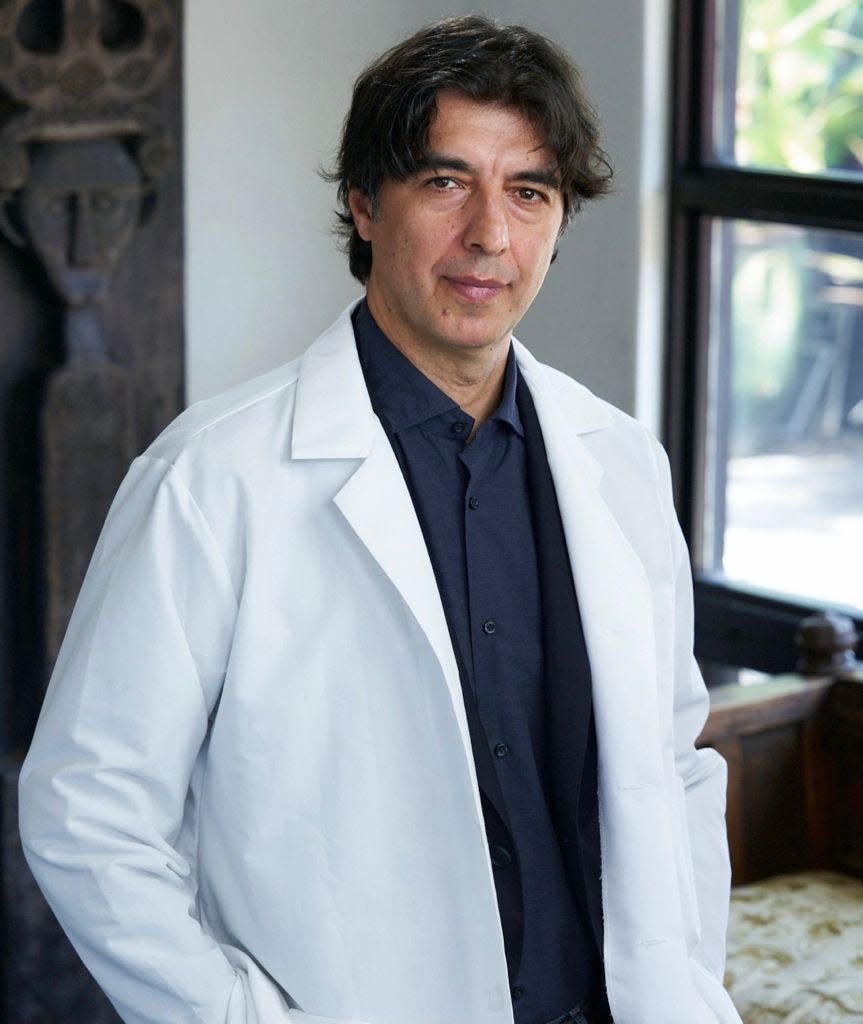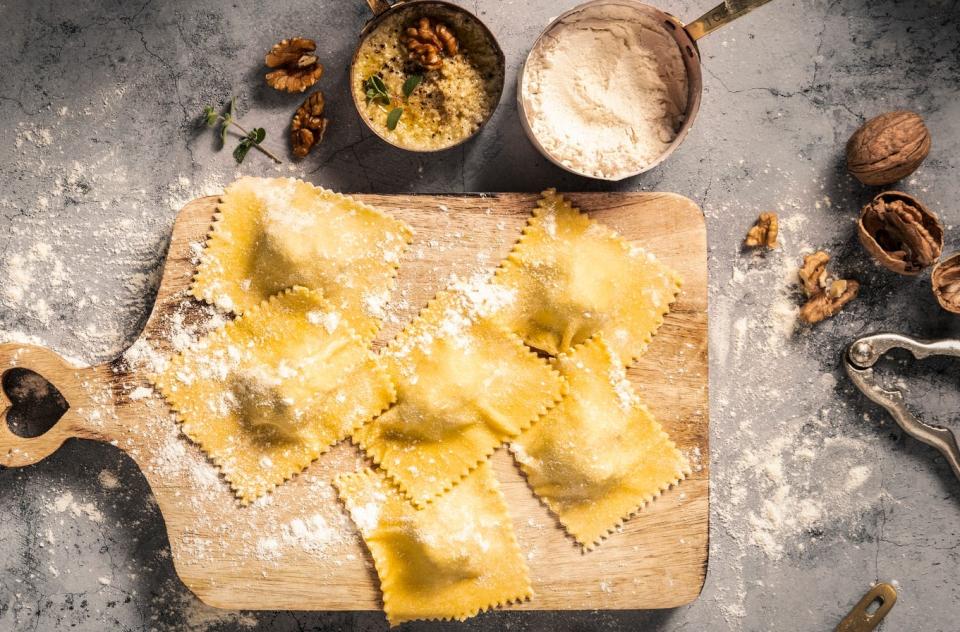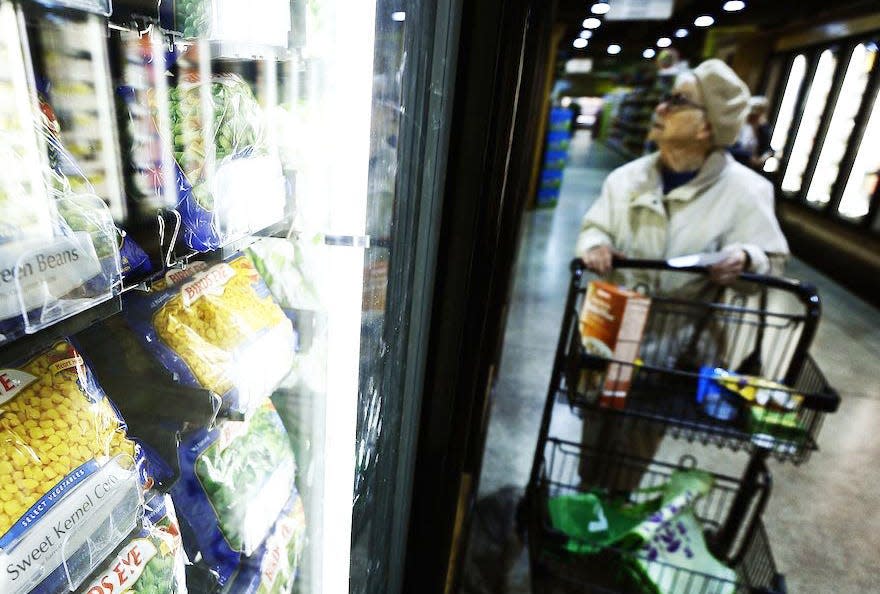An Italian scientist started eating like an American and saw his blood sugar and cholesterol skyrocket. A simple diet helped him reverse the damage.
Valter Longo moved from Italy to the US as a teenager and quickly saw his cholesterol skyrocket.
He's since developed an extremely popular 5-day fasting diet.
He says it needn't be hard to eat healthy — filling your cart with frozen produce is his first tip.
Valter Longo was just 16 when he landed in the US, ready to rock. He loved the bold electric sound of Jimi Hendrix, and had arrived in America to pour his heart and soul into studying jazz guitar.
Food was an afterthought. Longo went with what was easiest, consuming all the same things his American relatives and friends were eating.
"I didn't know any better," he told Business Insider.
Coke and hamburgers were some of the staples of his new Midwestern diet. Gone were the crunchy whole grain Friselle breads and Mediterranean vegetables he'd grown up on in the Italian port city of Genoa.
He didn't really notice the silent but steady impact his dietary shifts were having on his health. He couldn't see how less fiber, fewer colorful veggies, and more added sugar were chipping away at his heart health and widening his waistline. As he grew up and moved on to Texas for college, studying both biochemistry and music, he started to enjoy tasty local Tex-Mex offerings. Again, whatever was convenient and most readily available worked just fine for him.

"I think that's what happens to most people, right?" he said. "Because they're not experts, and you're surrounded by this world that is full of food and it's just very difficult not to fall into it."
By the time he moved to Los Angeles for grad school, about eight years into his American life, his doctor's office visits weren't producing the results he'd come to expect. He was startled to discover he'd developed both high cholesterol and high blood pressure at a "very young" age, he said.
Fortuitously, Longo was enrolled at UCLA to study the effects of fasting and caloric restriction on longevity. He remolded his diet to include more longevity staples and fewer calories (in line with what his professors were already doing for their own health), and the changes he saw were so rapid and inspiring that he ended up building a career, and a very successful meal kit business, around it.
"After six months," he said, "my markers went all back to normal."
He is now on a mission to teach people how to diet for healthy aging and fighting chronic diseases — with his own clinical research and personal experience as evidence.
Honing his longevity diet

Longo was, once again, just going with the local flow when he started adopting some of the diet strategies of renowned nutrition expert and very pro-veggie guy Roy Walford, one of his Ph.D. advisors at UCLA. He began opting for less meat and dairy, but more produce.
He soon experienced firsthand the health-boosting effects of a veg-forward, minimally-processed diet, which recent studies have shown can rapidly improve cholesterol, and potentially even slow down aging.

Then, came fasting. In addition to his research in Walford's lab, Longo had also been studying how to extend the lifespan of bacteria and yeast by starving it. He wondered how people could harness the benefits of fasting for longevity, too, since he knew the types of extreme caloric restriction his professor practiced were not ever going to be very popular.
Three decades later, Longo is the director of the University of Southern California Longevity Institute, pioneering anti-aging nutrition research, and the author of the internationally best-selling book, "The Longevity Diet."
He has started to amass a decent body of evidence, including numerous independent clinical trials conducted at leading universities around the world, that show some short periods of fasting — or, at least tricking the body into thinking it's fasting — may help to slow down the aging process. Longo believes fasting can also propel an important cellular cleanup process in the body, called autophagy.
In other words: "This could keep the organs younger and more functional," he said.
He has also rolled out a massively successful business venture based on this same science. It's a 5-day $200 fasting-mimicking diet, which has become extremely popular for fat loss. He grimaces a bit, as he acknowledges the diet's reputation.
"This is not a weight loss diet," he says.
He's hopeful that the diet could one day be seen as less of a vanity exercise, as recent research is suggesting it could become part of clinical care for health conditions including cancer, diabetes, autoimmune issues, and dementia.
"I think that we need to move much more into the personalized, specific types of fasting," he said.
How to eat healthy, no matter where you live: go frozen

For the average person interested in fasting, Longo recommends a more balanced approach than what biohackers and health influencers tout. Rather than cutting out solid food for days, or juice-cleansing, simply limit your meals to a 12-hour window (say, 8 a.m. to 8 p.m.), skipping late-night snacks.
As for what you do eat, Longo is aligned with other longevity experts. Beans, whole grains, vegetables, seeds, nuts — in short, all the food you find in the "Blue Zones", and in Longo's hometown of Genoa, Italy (like his favorite crunchy Italian bread). Arguably his most classically Italian recommendation? He suggests adults who want to try a longevity-focused diet aim for "generous" quantities of olive oil, at three teaspoons per day. (Recent research is starting to suggest this could be a great way to help stave off dementia.)
"Unless you end up in the lab of a world expert, it's not so easy to know what to do," Longo said. "Once you know, it's very easy to get that food anywhere in the United States."
And he says you don't have to spend a bundle of cash at trendy organic markets to make this diet work. Some of his favorite recipes focus on eating vegetables you can easily find frozen like broccoli and carrots, plus lots of beans, a little bit of fish, and maybe some nuts for snacking.
"I always say a lot of frozen food is very healthy, organic, and you can get it anywhere in the US, even in little villages in the Midwest," he said.
Read the original article on Business Insider


